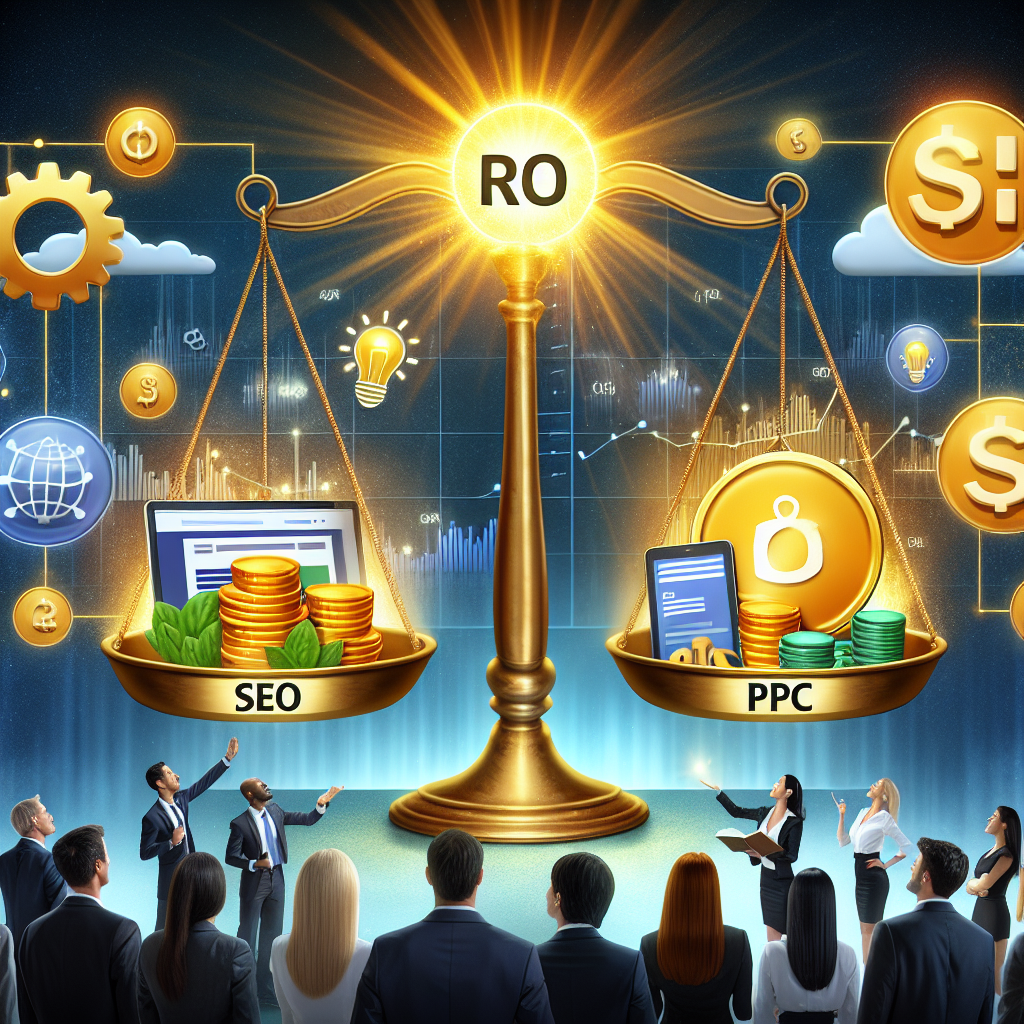In the digital landscape, businesses are constantly vying for attention. With millions of websites competing for clicks, how can you ensure your business stands out? Two powerful strategies — Search Engine Optimization (SEO) and Pay-Per-Click (PPC) advertising — can help you achieve this. But which one should you choose for your business? In this article, we will explore the advantages and disadvantages of both methods, enabling you to make an informed decision that maximizes your return on investment (ROI).
Understanding SEO: The Long Game
What is SEO?
Search Engine Optimization (SEO) is the process of optimizing your website to improve its visibility in organic search results. When users search for relevant keywords, a well-optimized site can appear at the top of the results, driving free traffic to your business.
Benefits of SEO
-
Cost-effective in the Long Run: While it may require an upfront investment in time and resources, SEO can yield long-lasting results. Once you achieve a higher ranking, you can maintain your position without ongoing costs per click.
-
Builds Credibility and Trust: Ranking high in search results often equates to credibility. Users tend to trust organic listings more than paid ads, enhancing your brand image.
-
Higher Click-through Rates (CTR): Data shows that organic results often receive higher CTRs than paid listings. If your goal is to attract genuine traffic, SEO can be a strategic choice.
- Sustainable Traffic Over Time: A well-optimized website can generate consistent traffic over time. Unlike PPC, where traffic stops once you stop paying, SEO provides ongoing benefits.
Drawbacks of SEO
-
Time-Intensive: SEO is not an overnight solution. It can take months to see significant results, which may not align with urgent business needs.
- Algorithm Changes: Search engine algorithms change frequently. A technique that works today might not be effective tomorrow, necessitating continuous learning and adaptation.
Understanding PPC: The Quick Fix
What is PPC?
Pay-Per-Click (PPC) advertising is a model where advertisers pay each time a user clicks on their ad. This can include sponsored listings on search engines, social media ads, and display ads across networks.
Benefits of PPC
-
Immediate Results: Unlike SEO, PPC can deliver instant visibility. As soon as you launch a campaign, your ads can appear in search results, driving traffic almost immediately.
-
Targeted Advertising: PPC allows you to target specific demographics, geographic locations, and user behaviors, ensuring your ads reach the right audience.
-
Adjustable Budgets: You have complete control over your budget. You can set daily limits, adjust bids, and fine-tune your campaigns based on performance.
- Measurable ROI: PPC campaigns provide detailed analytics that allows you to track conversions, ensuring you can measure ROI accurately.
Drawbacks of PPC
-
Costs Can Add Up: While PPC delivers quick results, it can also be costly. If not managed properly, your ad budget can deplete rapidly, leading to negative effects on ROI.
-
Traffic Dependency: Once you stop funding your campaigns, the traffic may cease almost immediately. You rely heavily on continuous funding to maintain visibility.
- Ad Fatigue: Over time, users may grow tired of seeing the same ads, leading to declines in CTR and overall effectiveness.
Making the Decision: SEO vs. PPC
Consider Your Goals
To decide between SEO and PPC, consider your business goals:
- Short-term goals: If you need quick results or have an upcoming product launch, PPC might be the better option.
- Long-term goals: If you’re looking for sustainable growth and credibility, investing in SEO may be advantageous.
Assess Your Budget
Review your financial resources. While SEO requires time and consistent effort, PPC demands a monetary investment each time a user interacts with your ad. Determine what you can afford and plan accordingly.
Analyze Your Market
Understanding your target market is key. Industries with high competition might benefit from the aggressive tactics of PPC, whereas niches with less competition could see greater ROI through SEO.
Hybrid Approach for Maximum Impact
For many businesses, a hybrid approach works best. Leveraging both SEO and PPC can help maximize your reach. Use PPC for immediate visibility while simultaneously investing in SEO for long-term growth. Analyzing performance metrics from both channels can provide insights into where to focus your efforts.
Conclusion
Deciding between SEO and PPC is not a one-size-fits-all choice but rather a strategic decision based on your business needs, goals, and resources. By understanding the benefits and drawbacks of each approach, you can tailor your digital marketing strategy to maximize your ROI. Whether you opt for the long-term benefits of SEO or the immediate results of PPC, your focus should always be on creating value for your customers. Remember, in the world of digital marketing, the right choice is the one that aligns with your unique business strategy and objectives.


